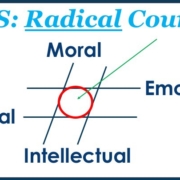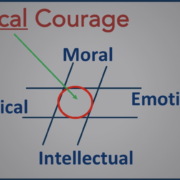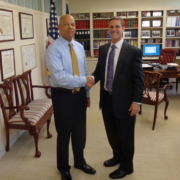3 questions the best leaders use to make tough decisions
Leaders reach out to experts and specialists when they face challenging situations. You need generalists, too, so you ask the right questions and avoid the ten words that lead to bad choices:
Follow the Data! Obey the SCIENCE! Listen to the Experts!
Data is not wisdom, and data-driven decision-making can leave companies worse off. Here’s how.
The best leaders listen to people who know what they are talking about and make decisions that best serve the company.
That seems simple enough, but implementation can be challenging.
Experts provide valuable insight on specific topics, but narrow perspectives create myopic advice.
Take COVID, for example. Medical experts provided data that projected death tolls and made recommendations like lockdowns to stop the spread of the virus.
Partisans egged on leaders with the ten words. Over time their associated advice led to higher death tolls, substantial economic dislocation, greater social polarization, damaged mental health, and massive learning loss.
The problem was not the data or advice, necessarily, but the question. Asking experts “How to stop the spread” created answers different than the more holistic “How to best support my constituents during this pandemic?” The latter question required leaders to determine the best balance between reducing the virus’s threat and promoting the general welfare.
The experts, of course, could not answer the latter question because they lacked the perspective. Leaders who unquestioningly obeyed the experts had demonstrably worse outcomes that those who took the broader perspective.
I was asked recently to provide a testimony to Congress on the Afghanistan debacle. One House Member was trying to make a point that President Biden ignored the advice of the generals and asked me what I thought of that.
Thank goodness Abraham Lincoln didn’t listen to General McClellan, I replied, and noted that FDR disregarded General Marshall’s advice on how to take the fight to the Nazis in 1942, and Truman disagreed with General MacArthur’s advice to use atomic bombs on Chinese cities.
My view on Afghanistan was that leaving was the right thing to do, but the timing and execution were badly botched.
Leaders should avoid the other extreme of trying to do the experts’ jobs for them. Lyndon Johnson’s efforts to select bombing targets in Vietnam is a classic example of getting trapped in the weeds and ignoring the bigger picture.
Leaders should listen to trusted experts, but make decisions based on advancing the common good.
Instead of asking narrow questions about how to optimize a particular silo or function, the best leaders keep their focus wider.
“What must be true for this option to work?” is a great way to uncover assumptions. You can then determine the indicators of validity and orient your data analysis accordingly.
“What’s the best way to advance our organization’s common good in this situation?” keeps your the focus on the blogger picture.
“What information do I need to make this decision?” helps you avoid wag-the-dog problems with siloed data.
You’ll benefit from trusted advisors who are generalists because their perspectives are broader and they’ll help you orient on the big picture.
P.S. Do your employees have the psychological confidence to bring you bad news, identify problems, take risks, and offer new ideas? Email me if you’d like to discuss psychological confidence and ways to improve it.










